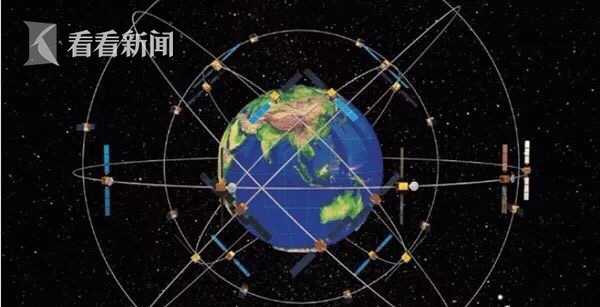
Short-term memory, long-term memory. Cognitive psychology regards memory as the process of coding, storing and extracting input information by the human brain. Memory is divided into three systems: instantaneous memory, short-term memory and long-term memory, which is based on the different ways of encoding, storing and extracting information, as well as the different length of information storage time.
What are the three memory systems: memory is also regarded as the process of the human brain encoding, storing and extracting input information, and according to the different ways of coding, storing and extracting information, as well as the different length of information storage time, memory is divided into instantaneous memory, short-term memory and long-term memory. A system.
What are the three memory systems? According to the different ways of encoding, storing and extracting information, and the different length of information storage time, memory is divided into three systems: instantaneous memory, short-term memory and long-term memory.
The three stages of memory are sensory memory, short-term memory and long-term memory. Sensory memory: Sensory memory refers to the information we receive through various sensory organs, such as vision, hearing, touch, taste and smell.
What are the three memory systems? According to the different ways of coding, storage and extraction of information, and the different length of information storage time, memory is divided into instantaneous memory, short-term memory and long-term memory. Remember the three systems.
The coding method of instantaneous memory, that is, the way instantaneous memory remembers information, is the image of external stimuli. Because the information of instantaneous memory is first registered in the sensory channel in the form of sensory images, instantaneous memory has a distinct image. The capacity of instantaneous memory is large, but the retention time is very short.
Perception is the cognitive process of giving meaning through information. ( 2) Working memory. It is the memory of processing and encoding information in the human brain within a minute. The holding time is about 5 seconds to 1 minute. Short-term memory also includes direct memory and working memory.

Weber's score), which is only applicable to medium-intensity stimuli, which is different from the Weber's score of sensory organs (2) Fechner's Law: 1860, using the differential threshold as the unit of sensation, a stimulus was measured. The difference threshold contained is believed to be the psychological intensity caused by this stimulus.
The concept of memory is the psychological process of accumulating, preserving and extracting individual experience in the mind.From storing into the brain to extracting and applying again, this complete process is collectively called memory.
Long-term memory refers to the memory maintained for more than a minute after external stimuli appear in a very short time. Features: The capacity of memory is unlimited, whether it is the type or quantity of information. Coding Semantic coding: Use words to process information and organize coding according to the meaning of the material.
Memory and memory process Definition: It is the reaction of past experience in the mind. Past experience refers to the perception of things, thinking about problems, the emotional experience caused by things, and the actions that have been carried out in the past. Function: It is the root of wisdom and the cornerstone of psychological development.
Bingo Plus stock-APP, download it now, new users will receive a novice gift pack.
Short-term memory, long-term memory. Cognitive psychology regards memory as the process of coding, storing and extracting input information by the human brain. Memory is divided into three systems: instantaneous memory, short-term memory and long-term memory, which is based on the different ways of encoding, storing and extracting information, as well as the different length of information storage time.
What are the three memory systems: memory is also regarded as the process of the human brain encoding, storing and extracting input information, and according to the different ways of coding, storing and extracting information, as well as the different length of information storage time, memory is divided into instantaneous memory, short-term memory and long-term memory. A system.
What are the three memory systems? According to the different ways of encoding, storing and extracting information, and the different length of information storage time, memory is divided into three systems: instantaneous memory, short-term memory and long-term memory.
The three stages of memory are sensory memory, short-term memory and long-term memory. Sensory memory: Sensory memory refers to the information we receive through various sensory organs, such as vision, hearing, touch, taste and smell.
What are the three memory systems? According to the different ways of coding, storage and extraction of information, and the different length of information storage time, memory is divided into instantaneous memory, short-term memory and long-term memory. Remember the three systems.
The coding method of instantaneous memory, that is, the way instantaneous memory remembers information, is the image of external stimuli. Because the information of instantaneous memory is first registered in the sensory channel in the form of sensory images, instantaneous memory has a distinct image. The capacity of instantaneous memory is large, but the retention time is very short.
Perception is the cognitive process of giving meaning through information. ( 2) Working memory. It is the memory of processing and encoding information in the human brain within a minute. The holding time is about 5 seconds to 1 minute. Short-term memory also includes direct memory and working memory.

Weber's score), which is only applicable to medium-intensity stimuli, which is different from the Weber's score of sensory organs (2) Fechner's Law: 1860, using the differential threshold as the unit of sensation, a stimulus was measured. The difference threshold contained is believed to be the psychological intensity caused by this stimulus.
The concept of memory is the psychological process of accumulating, preserving and extracting individual experience in the mind.From storing into the brain to extracting and applying again, this complete process is collectively called memory.
Long-term memory refers to the memory maintained for more than a minute after external stimuli appear in a very short time. Features: The capacity of memory is unlimited, whether it is the type or quantity of information. Coding Semantic coding: Use words to process information and organize coding according to the meaning of the material.
Memory and memory process Definition: It is the reaction of past experience in the mind. Past experience refers to the perception of things, thinking about problems, the emotional experience caused by things, and the actions that have been carried out in the past. Function: It is the root of wisdom and the cornerstone of psychological development.
Hearthstone Arena class tier list 2024
author: 2025-01-08 09:50UEFA Champions League live streaming free
author: 2025-01-08 09:31 Casino Plus login register
Casino Plus login register
785.77MB
Check DigiPlus Philippine
DigiPlus Philippine
673.85MB
Check Europa League app
Europa League app
429.91MB
Check DigiPlus stock
DigiPlus stock
486.74MB
Check Arena Plus login
Arena Plus login
588.47MB
Check UEFA EURO
UEFA EURO
968.46MB
Check PAGCOR online casino free 100
PAGCOR online casino free 100
726.54MB
Check Casino Plus
Casino Plus
758.74MB
Check Hearthstone Wild Decks
Hearthstone Wild Decks
658.97MB
Check Bingo Plus stock
Bingo Plus stock
894.79MB
Check European Cup live
European Cup live
271.95MB
Check Casino Plus free 100
Casino Plus free 100
947.96MB
Check UEFA Europa League
UEFA Europa League
966.62MB
Check casino plus free 100
casino plus free 100
711.71MB
Check DigiPlus stock
DigiPlus stock
128.99MB
Check UEFA EURO
UEFA EURO
856.95MB
Check Casino Plus
Casino Plus
428.82MB
Check 100 free bonus casino no deposit GCash
100 free bonus casino no deposit GCash
813.29MB
Check UEFA Europa League
UEFA Europa League
185.77MB
Check Arena plus APK
Arena plus APK
278.69MB
Check Casino free 100 no deposit
Casino free 100 no deposit
771.36MB
Check Hearthstone Arena Tier List
Hearthstone Arena Tier List
372.43MB
Check UEFA Champions League live
UEFA Champions League live
595.19MB
Check bingo plus update today Philippines
bingo plus update today Philippines
389.13MB
Check UEFA live free
UEFA live free
225.76MB
Check Hearthstone deck
Hearthstone deck
822.54MB
Check Casino Plus free 100
Casino Plus free 100
189.19MB
Check Europa League app
Europa League app
788.22MB
Check European Cup live
European Cup live
464.86MB
Check bingo plus update today Philippines
bingo plus update today Philippines
828.65MB
Check UEFA Champions League
UEFA Champions League
282.35MB
Check Bingo Plus
Bingo Plus
318.26MB
Check Casino free 100 no deposit
Casino free 100 no deposit
172.58MB
Check Free sports events uefa champions league app android
Free sports events uefa champions league app android
281.43MB
Check Casino free 100 no deposit
Casino free 100 no deposit
674.55MB
Check Hearthstone Arena win rate
Hearthstone Arena win rate
645.43MB
Check
Scan to install
Bingo Plus stock to discover more
Netizen comments More
600 bingo plus update today Philippines
2025-01-08 10:22 recommend
2982 Walletinvestor digi plus
2025-01-08 10:07 recommend
901 UEFA TV
2025-01-08 09:44 recommend
2725 UEFA European championship
2025-01-08 09:31 recommend
2113 Hearthstone arena
2025-01-08 09:01 recommend